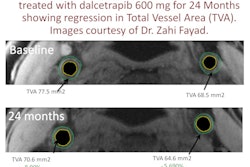Dear Molecular Imaging Insider,
According to the Society of Nuclear Medicine (SNM), more than 16 million Americans undergo nuclear medicine procedures each year for medical conditions including cancer, cardiovascular disease, neurological disease, and other physiological problems.
Still, the benefits of nuclear medicine and molecular imaging may not be fully understood by patients, physicians, payors, and healthcare regulatory decision-makers.
This issue of the Molecular Imaging Insider offers a one-on-one interview with the president of SNM, Dr. George Segall, who is also chief of nuclear medicine service at the Veterans Affairs Palo Alto Health Care System and a professor of radiology at Stanford University. Dr. Segall is leading efforts to bolster the appropriate use of nuclear medicine and molecular imaging, advance education about the modalities, and promote the organization's outreach efforts.
Learn more about SNM's priorities by clicking here.
This edition of the Insider also features research from Danbury Hospital in Connecticut. A group there found that appropriateness criteria developed in 2009 by the American College of Cardiology and the American Society of Nuclear Cardiology performed "fairly well" for certain indications, reducing the number of inappropriate imaging exams.
In other news, it would appear that pediatric patients have a friend in sodium fluoride (NaF) PET. A study from Children's Hospital Boston and Massachusetts General Hospital found that skeletal imaging with NaF-PET provides better imaging than standard nuclear imaging techniques and can help physicians accurately investigate the cause of bone pain.
For breast cancer patients with bone metastases, maximum standardized uptake values from PET/CT scans can help predict their prognosis, but other PET/CT values could be even more useful, according to researchers from Memorial Sloan-Kettering Cancer Center. Click here to learn more.
Finally, the U.S. Food and Drug Administration (FDA) has issued a warning letter to Columbia University Medical Center in New York City for allegedly failing to comply with FDA regulations on the use of radioactive drugs for human research.
Be sure to stay in touch with the Molecular Imaging Digital Community on a daily basis to be informed of the latest news and research, and watch next month for our preview of nuclear medicine and molecular imaging scientific papers at this year's annual RSNA meeting.




















